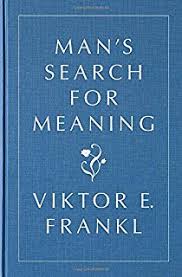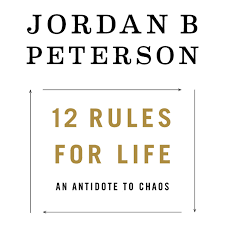 1. Man’s Search for Meaning – Viktor E. Frankl
1. Man’s Search for Meaning – Viktor E. Frankl
“He who has a why to live for can bear almost any how.”
There are very few books which have fundamentally altered the way I think about the world and change my outlook on life. Viktor E. Frankl’s 1946 book, A Man’s Search for Meaning is one of those books. Frankl was an Austrian psychiatrist and Holocaust survivor who lived from 1905-1997. He wrote this book in 1946 discussing his experiences as a prisoner in the Auschwitz concentration camp throughout the Second World War. He draws on his professional background to discuss how he survived the traumas endured in the camp, by finding personal meaning in the experience, giving him the will to live through it.
He chronicles how during his time in Auschwitz, he discovered that those who maintained a sense of purpose and meaning in life had a superior ability to survive than inmates who had lost their way. Frankl’s logotherapy therapeutic method emphasizes the importance of identifying a purpose in life, feeling good about it and then immersing yourself in imagining and realizing that outcome.
“Striving to find meaning in one’s life is the primary motivational force in man”
Frankl is fixated on the ideas of depression, anxiety, and meaning. He refers to the relationship that exists between “meaninglessness” in people’s lives and illnesses such as addiction and depression. His argument states that if people’s lives lack any real meaning, they’ll fill that void with materialism, boredom, obsessions, and compulsions which inevitably have adverse effects on that person and their pursuit of happiness or fulfillment.
The themes of this book make it particularly pertinent in Ireland today as suicide rates among men continue to rise disproportionately. Figures from 2016 indicate that 80% of suicides recorded in the country were men. Furthermore, the number of people being admitted to hospitals for instances of self-harm has increased in recent years, again particularly amongst men.

2. 12 Rules for Life: An antidote to chaos – Jordan B. Peterson
Jordan Peterson is a professor of psychology at the University of Toronto, a clinical psychologist, and a bestselling author. Over the last year, Peterson has grown in prominence, predominantly using Youtube to spread his ideas. A 30-second excerpt from a 28-minute interview with Cathy Newman on Channel 4, where he was forced to rebuff a particularly hard line of questioning, went viral and served as the perfect platform from which Peterson could launch sales of this book, 12 Rules for Life: An antidote to chaos.
Peterson draws from sources such as renowned philosopher Nietzsche, the founder of analytical psychology Carl Jung, Russian writer Dostoyevsky and the Bible. Throughout the book, Peterson condenses his thoughts on the subjects of discipline, responsibility, adventure and freedom into 12 practical and relatively enforcible rules for life.
Peterson scrutinizes many aspects of modern culture, providing a well-thought-out and more importantly, a fact-based critique on a range of topics such as speech censorship and political correctness as well as lamenting the central human tendency of living in the moment and the grasping of instant gratification. This is particularly important in this age where sexual and social roles have become increasingly less defined and a blurring of the lines between what constitutes right or wrong and good or bad has taken place. Below, I explored the main rule which I found to be the most applicable to my life and something which changed the way I looked at society
Stand up straight with your shoulders back
Peterson’s studies of the habit’s of lobsters led him to notice how lobsters controlled their posture with serotonin, the chemical associated by humans with happiness. This sparked his initial interest in the topic, leading him to subsequently discover that posture also governed status in the lobster species. Lobsters with good posture tended to be the more dominant males and as a consequence enjoyed all the benefits of being in the upper echelons of the dominance hierarchy.
“Walk tall and gaze forthrightly ahead. Dare to be dangerous.”
Peterson also noted how humans that were suffering from depression tended to crouch over with poor posture. On the back of this, Peterson began to notice the commonalities between various species hierarchies and humans and how it’s been instilled in us from an evolutionary biological perspective to establish hierarchies. That is to say that the concept of hierarchies has been instilled in our brains for the last 350 million years. A consequence of these hierarchies is that there is inevitably a top and a bottom and therefore the bottom is a dangerous place to be. One can offset the likelihood of ending up at the bottom by “standing up straight with your shoulders back.”
 3. Ego Is The Enemy – Ryan Holiday
3. Ego Is The Enemy – Ryan Holiday
“Wherever you are, whatever you’re doing, your worst enemy already lives inside you: your ego.”
Ryan Holiday is a college drop-out turned author, marketer, and entrepreneur. He currently runs his own company Brass Check, advising clients as well as many prominent best selling authors on media strategy. He was previously employed as the Director of Marketing for American Apparel, working closely with the CEO and founder, Dov Charney who was later fired from his own company amid charges of sexual misconduct.
Ego Is The Enemy is Holiday’s fourth book and focuses on bringing the lessons that can be taken from stoic and Buddhist philosophy to life. He does this by using examples of historical figures from various eras and backgrounds to demonstrate times when egotism has ruined those with great power or potential.
“While the history books are filled with tales of obsessive visionary geniuses who remade the world in their images with sheer, almost irrational force, I’ve found that history is also made by individuals who fought their egos at every turn, who eschewed the spotlight, and who put their higher goals above their desire for recognition”
He explores how the acquisition of an ego gives one an unhealthy belief in their own importance and therefore subsequently undermines the efforts those people make in the pursuit of their dreams. He goes on to discuss how not only can ego be managed it can be removed, allowing people to be more self-aware and modest about their own self-importance.
“The ability to evaluate one’s own ability is the most important skill of all. Without it, improvement is impossible.”